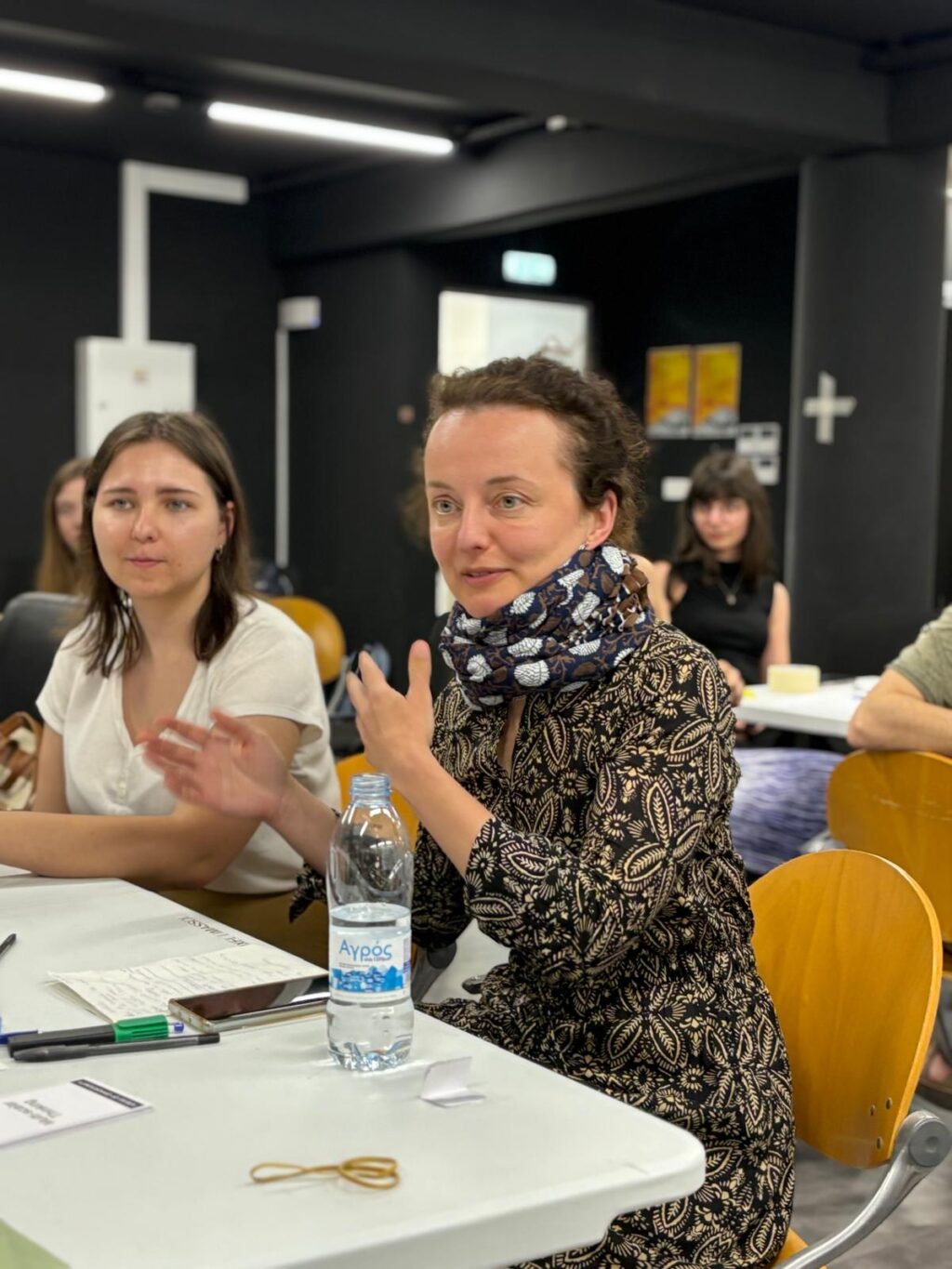Between 23 and 25 April 2024 I took part in the Intensive Study Programme (ISP) of Erasmus+ Aesthetico project on Aesthetics and Ecology in Technological Education. The workshops took place at the Media Arts & Design Research Lab (MAD Lab) of Cyprus University of Technology in Limassol, Cyprus.
Participants of ISP explored and tested in an interdisciplinary group setting a range of educational approaches to sustainable design thinking. All participants were asked to complete feedback forms which will contribute to the development of methodologies which address the issues of care, ecology and technology.
The workshops which were conducted as part of the Intensive Study Programme involved testing educational approaches in the form of games and interactive workshops. The games included “Atlas of Weak Signals”, “Revolt” and “In the Loop”. The activities also included the workshop with Dimitris Savva, which explored the potential of discarded objects to produce sounds and in audio performance.
As the current stage of my PhD project considers the expanded format of a workshop as a site of attention care with its social and intersubjective aspects, I found taking part in the activities as a participant very useful and thought-provoking. I have not used games in my research, but have experimented with introducing game elements in my workshop events. I took a particular interest in “Atlas of Weak Signals”, as its card form allows for very visual, interactive and fluid linking of concepts while considering existing approaches in the new light.
The highlight of the programme from the perspective of my own research project was the workshop with Dimitris Savva, who is an electronic sound artist and multimedia composer. The stages of the workshop involved listening intently to the environmental sounds, selecting objects in the room and testing them for their sound-producing properties, followed by working in groups on short sound performances which were then presented to others.
The workshop evoked a very palpable level of engagement, despite (or perhaps thanks to) the variety of backgrounds present in the room, which included engineers and architects. In my opinion the workshop achieved several things, in that it was playful and enjoyable as a relaxing, and then a creative session, but also in introducing the concepts of material awareness from the sensory perspective, in a non-direct, non-pushy and non-dogmatic way. As my PhD research involves interrogating the idea of care which occurs as a result of paying attention, to me the workshop did introduce the very notion of the value of non-visual attention paid to non-ocular modality. It also highlighted the potential of recognising multiple possible functions of objects and the materials they are made of, allowing to repurpose them as things for sound-making, while redirecting attention to properties of spaces and objects which are often overlooked, but which can be taken into consideration and designed for.
